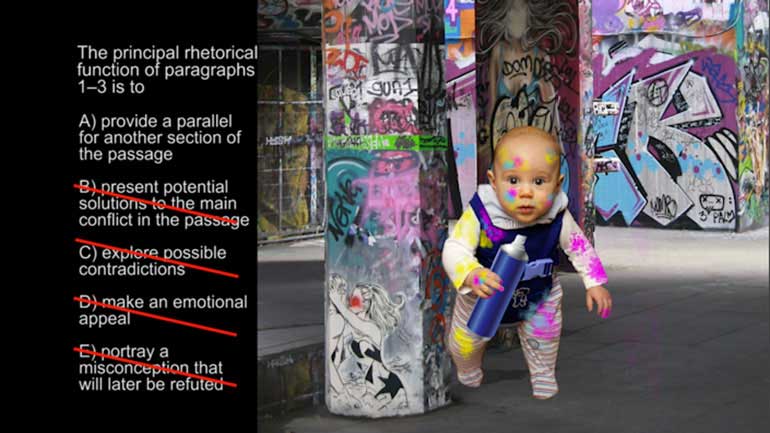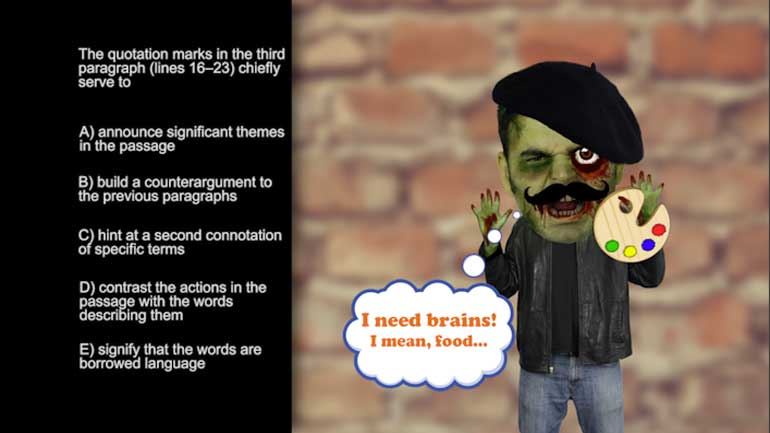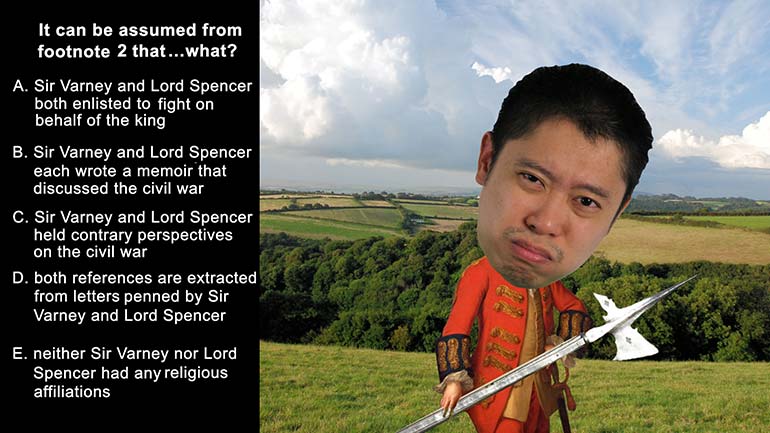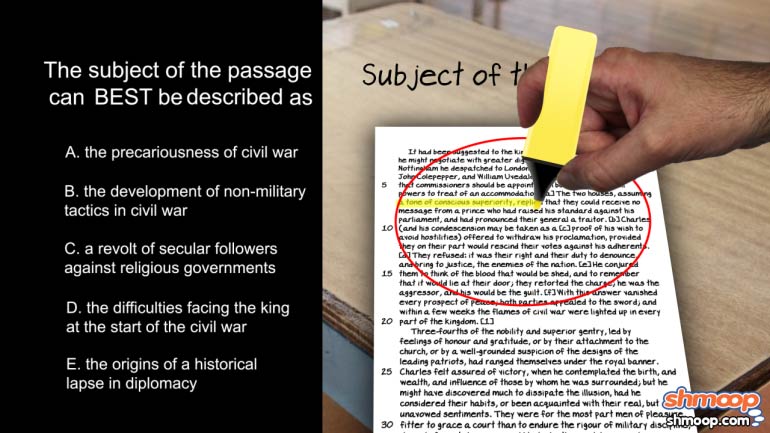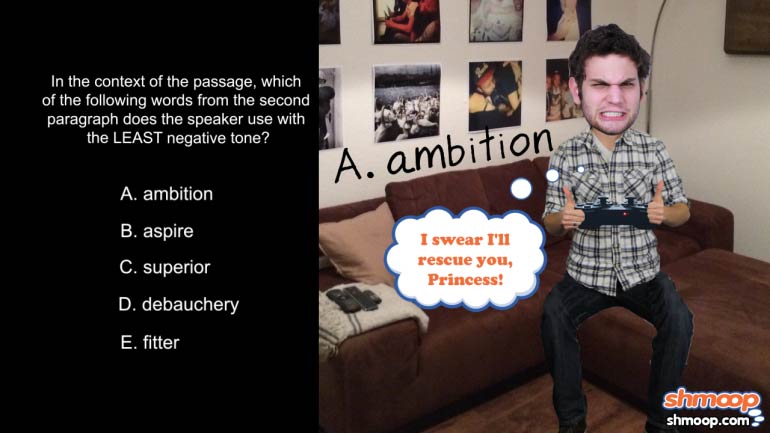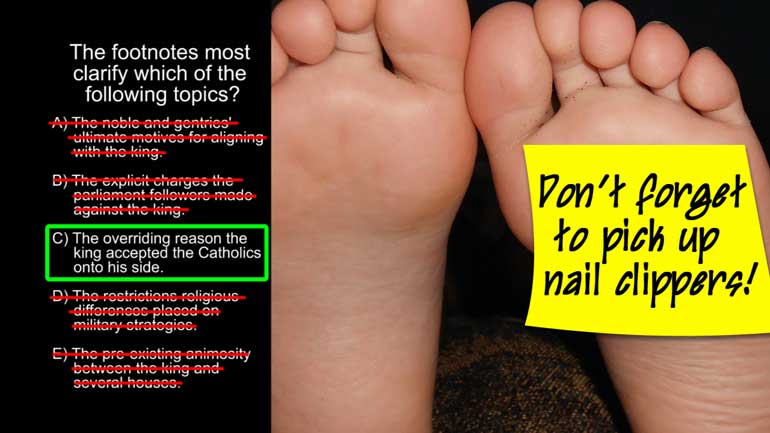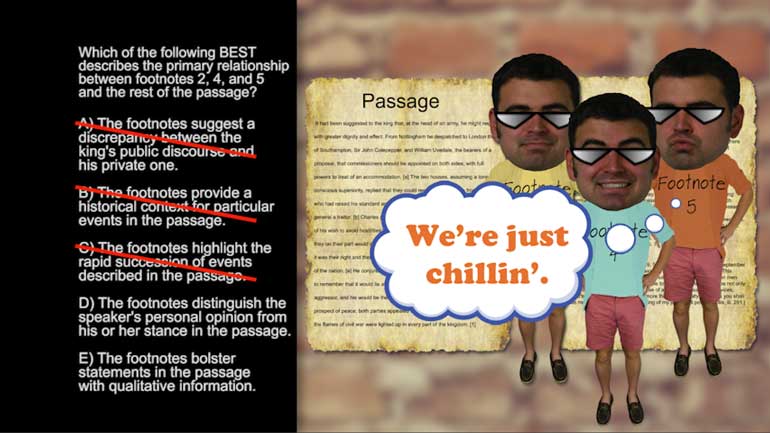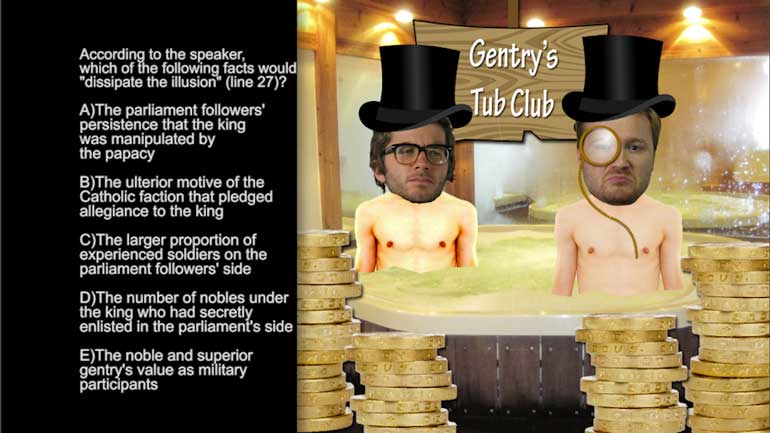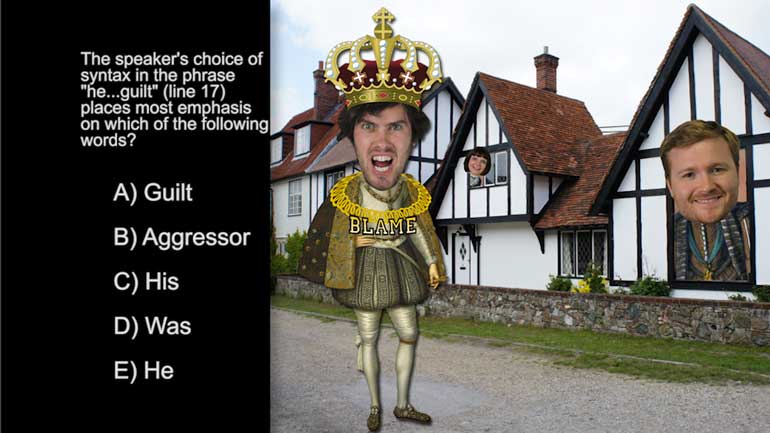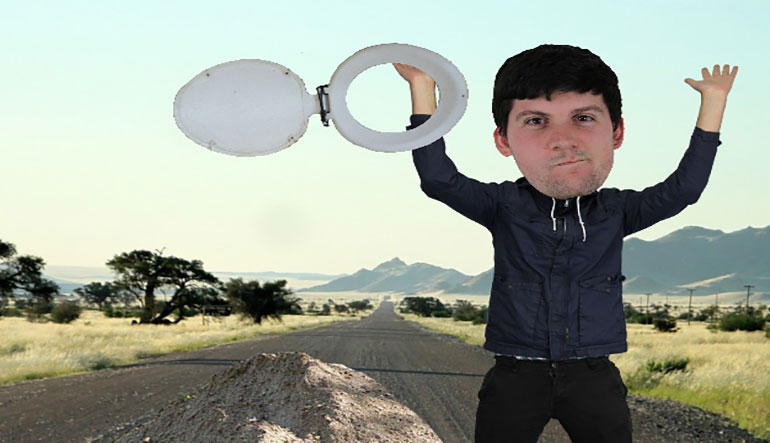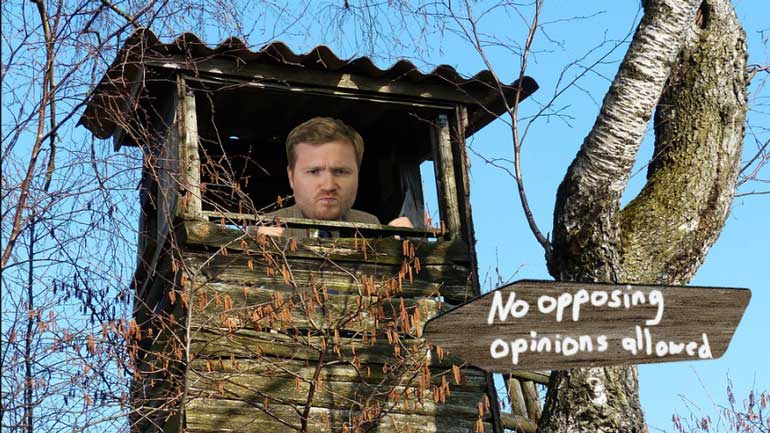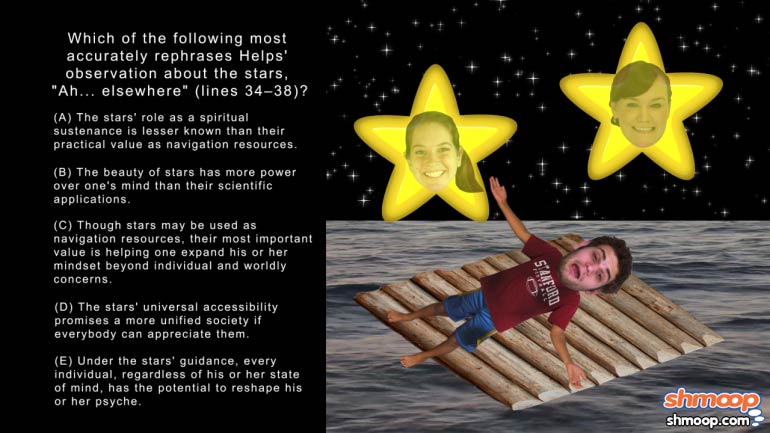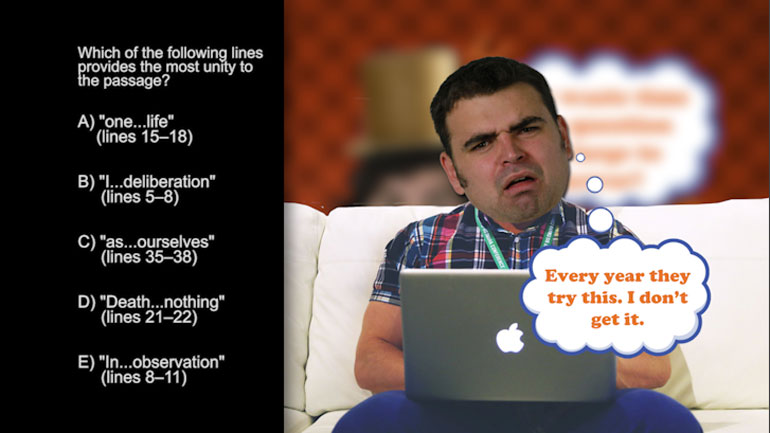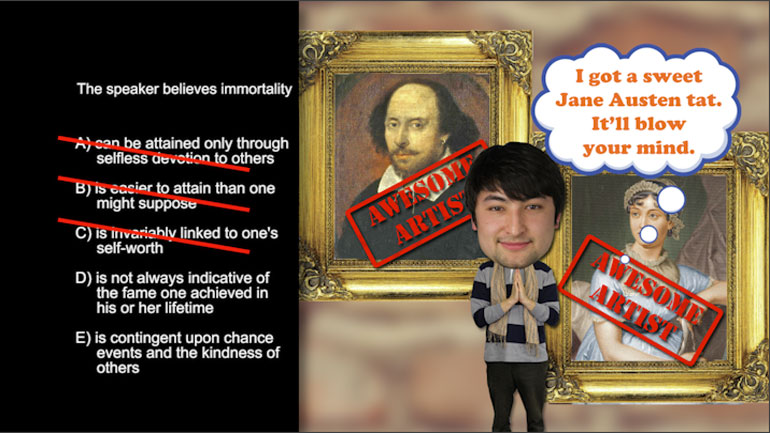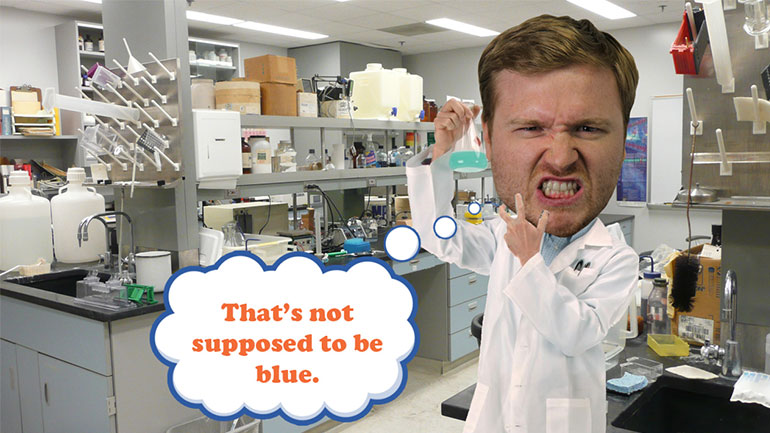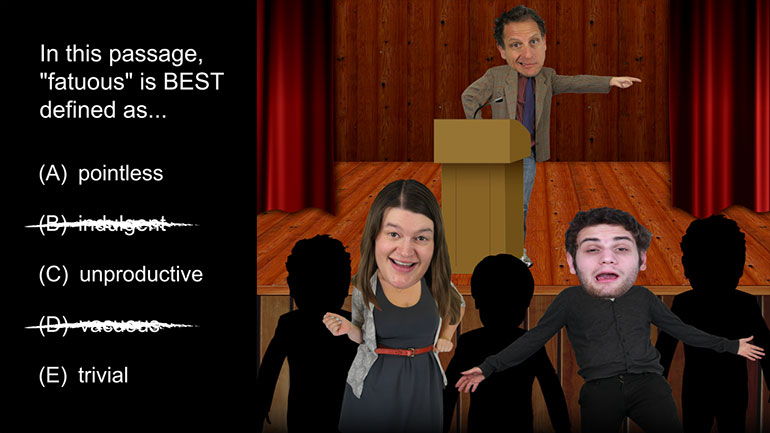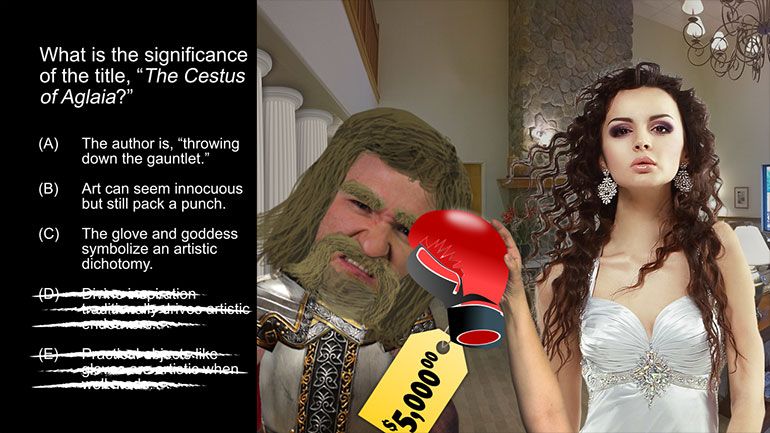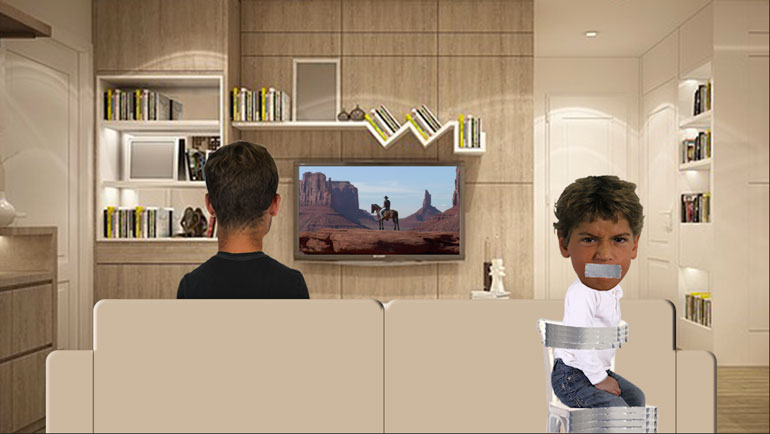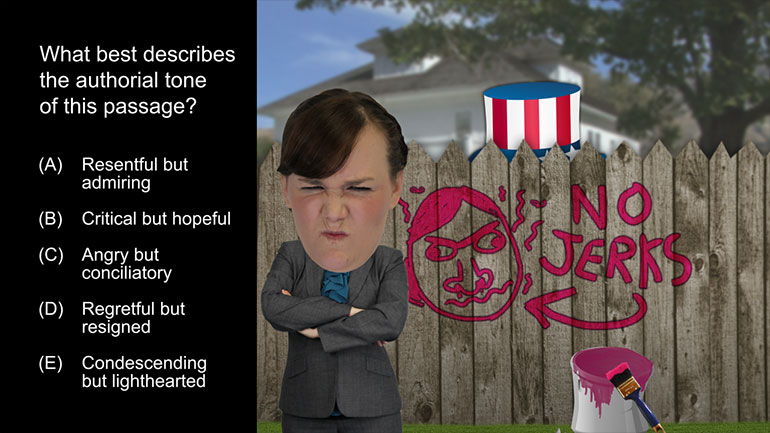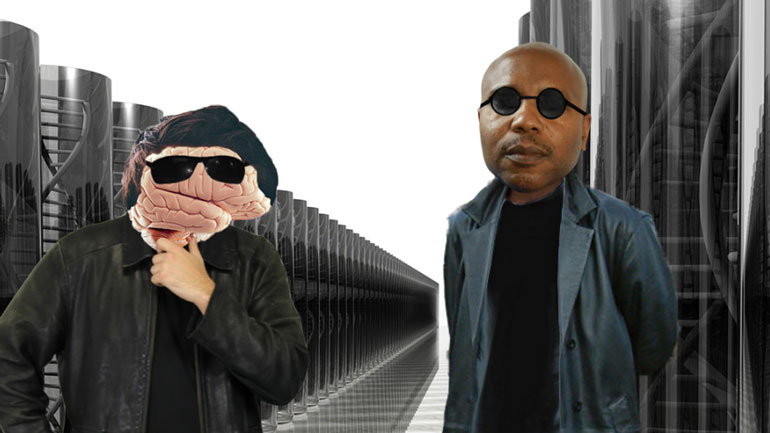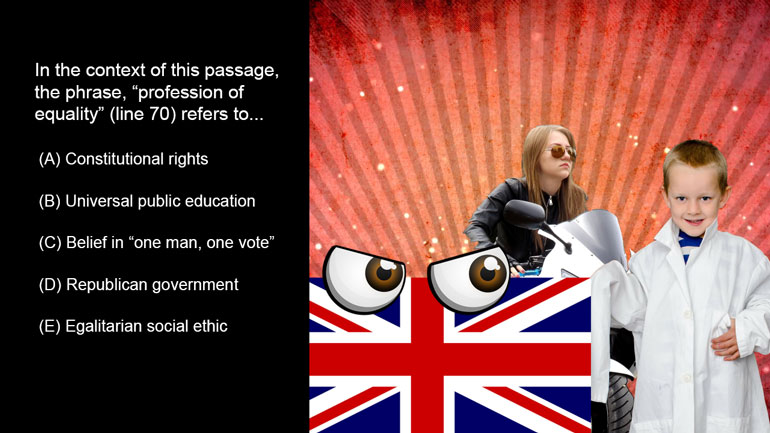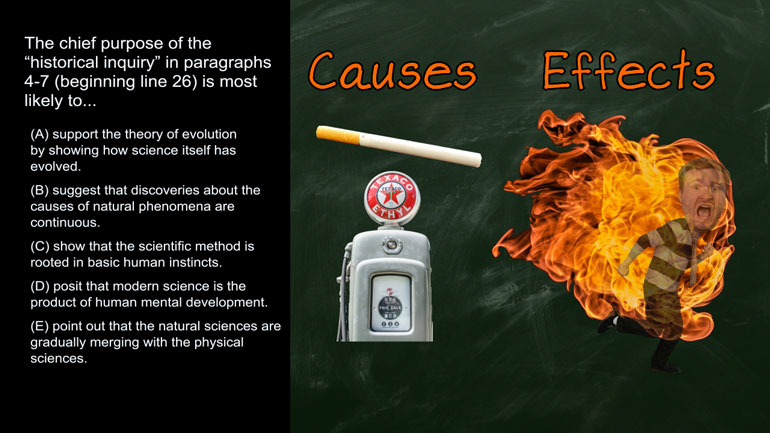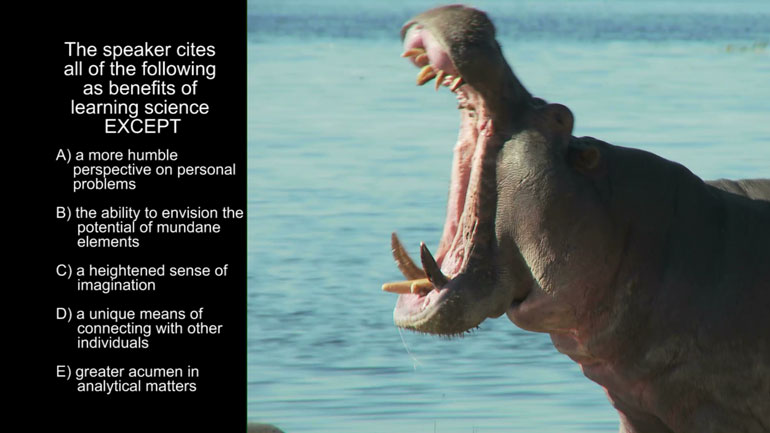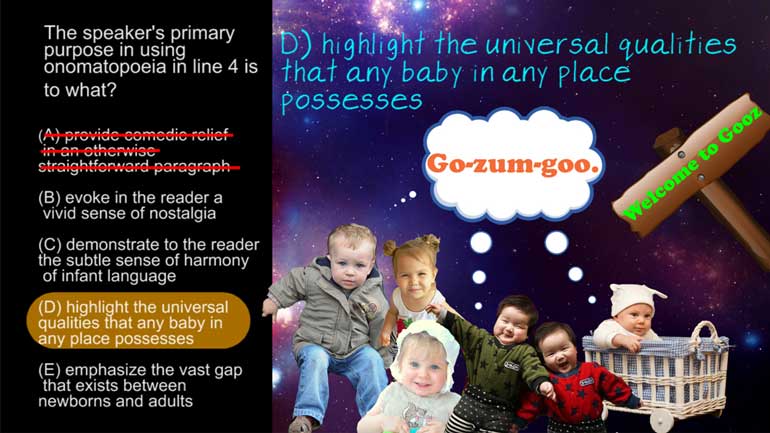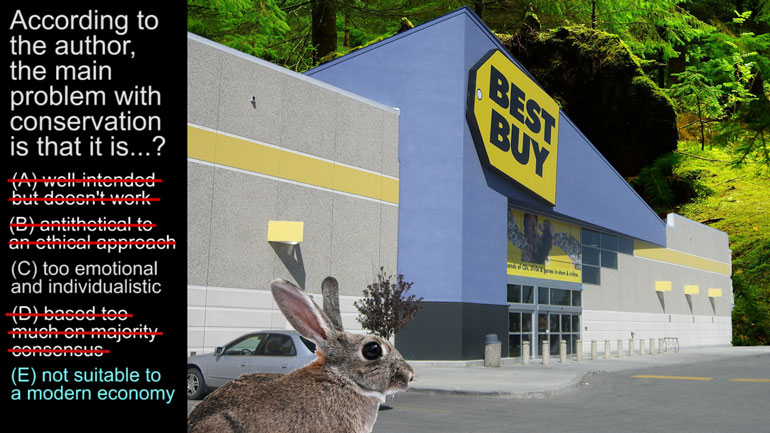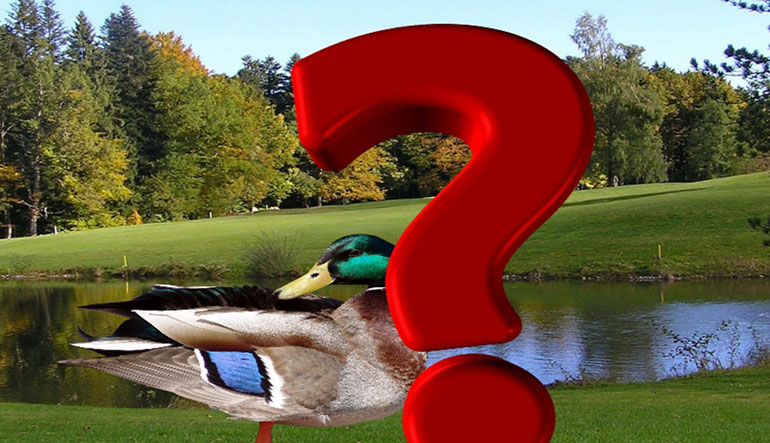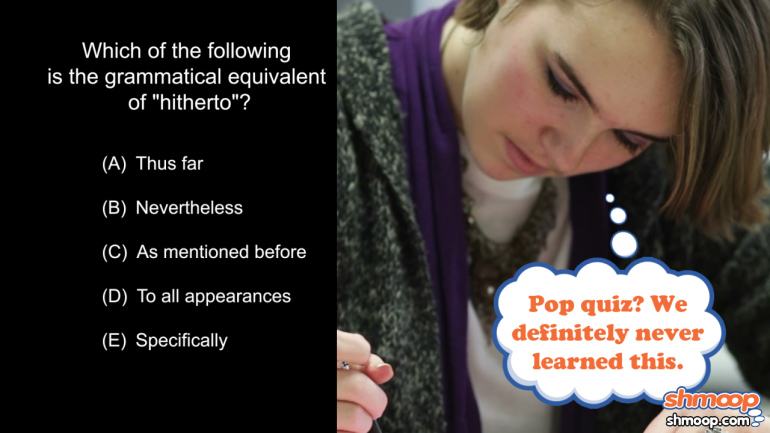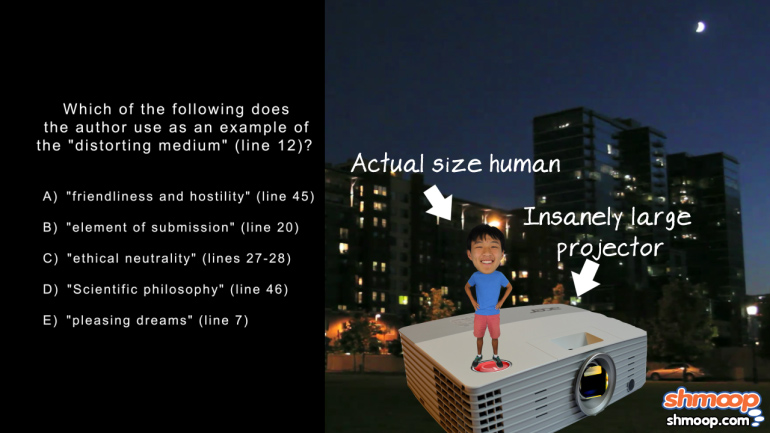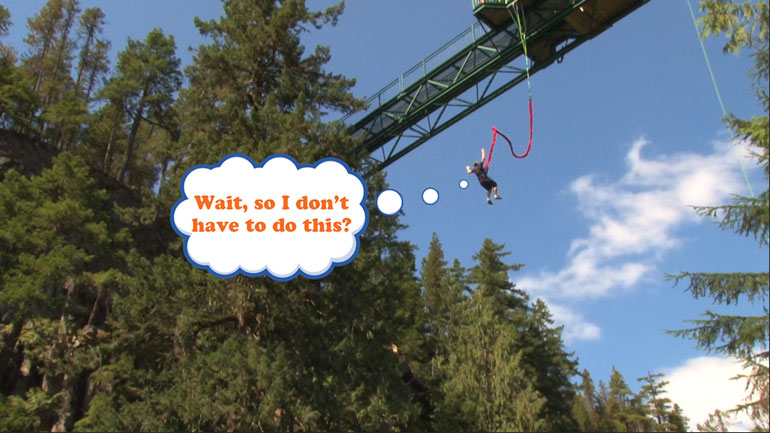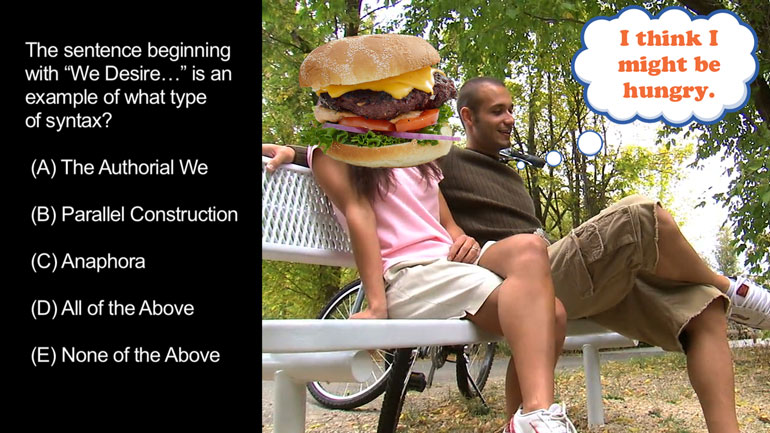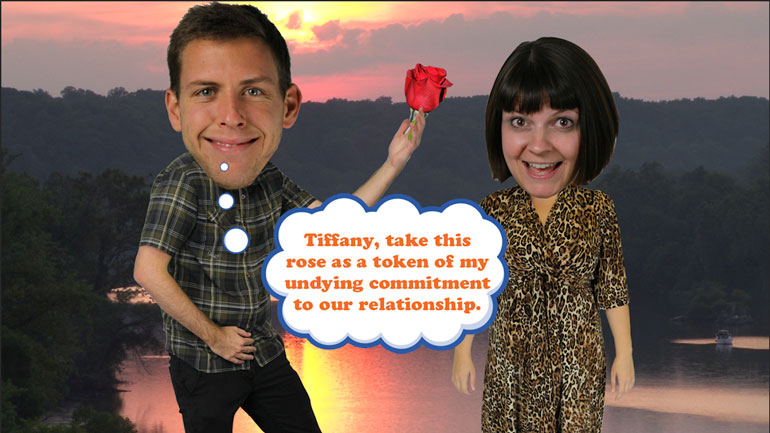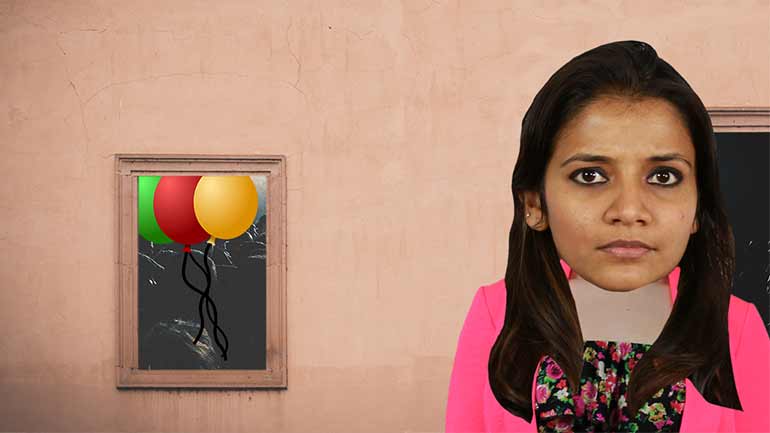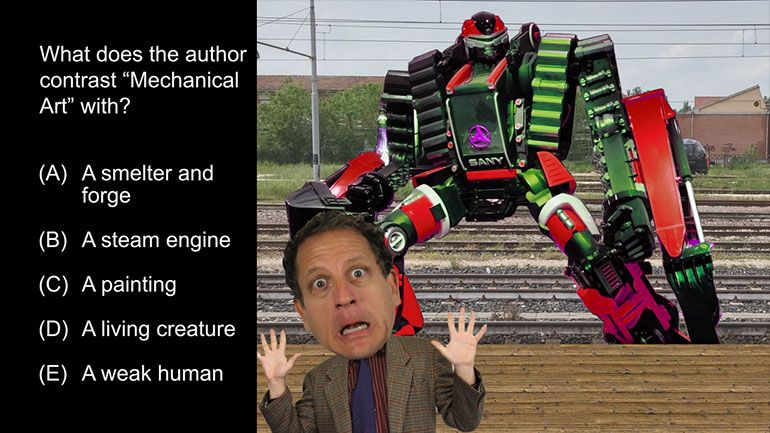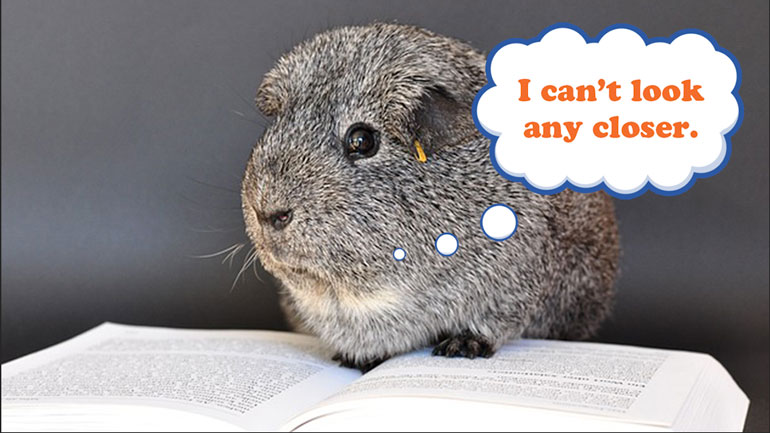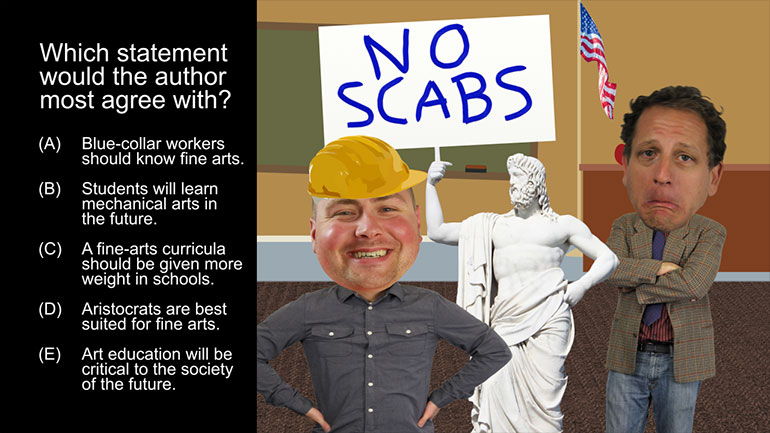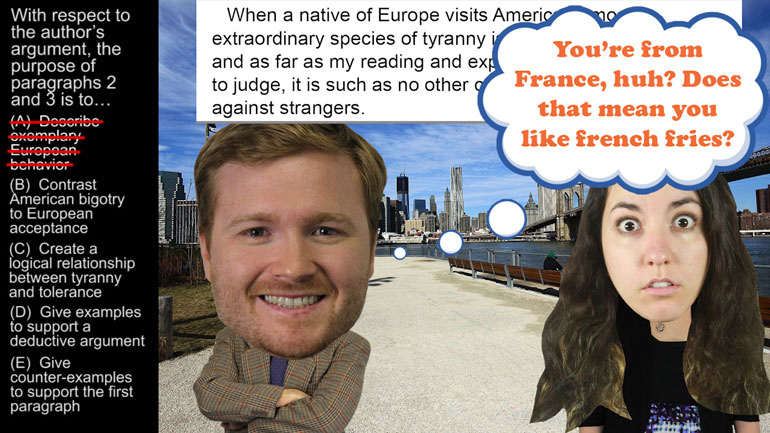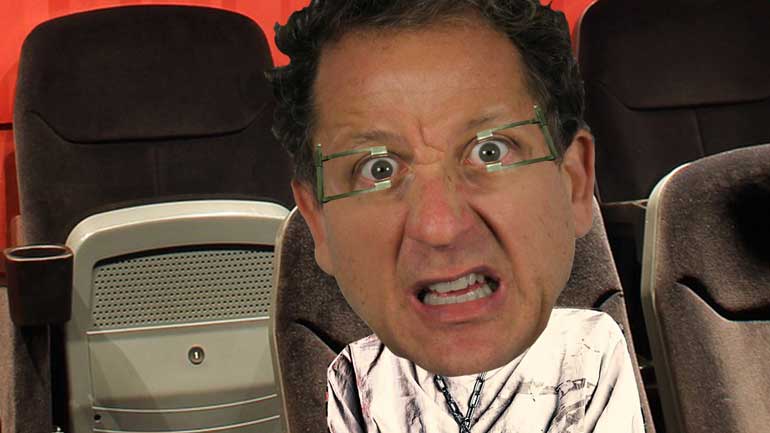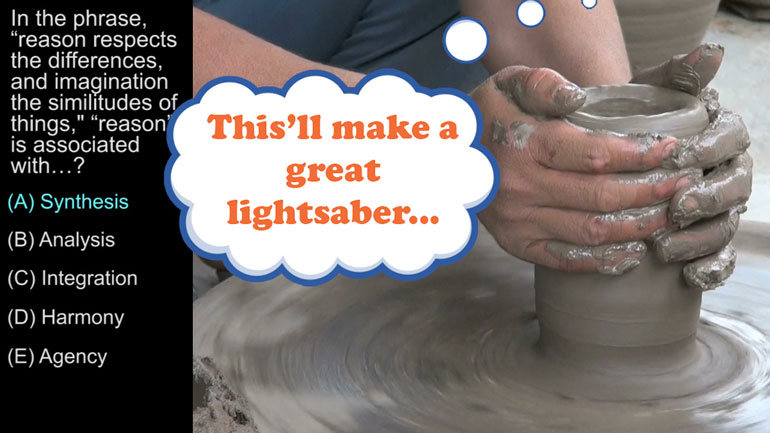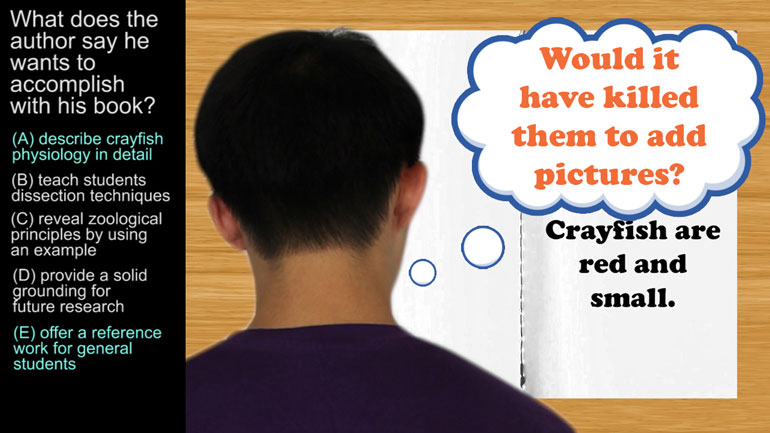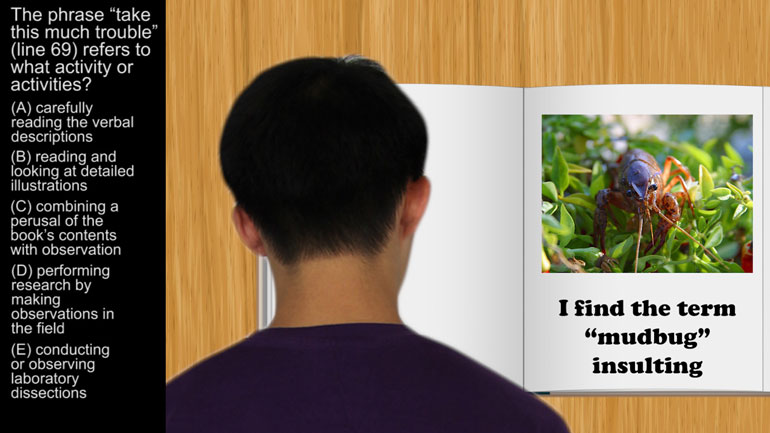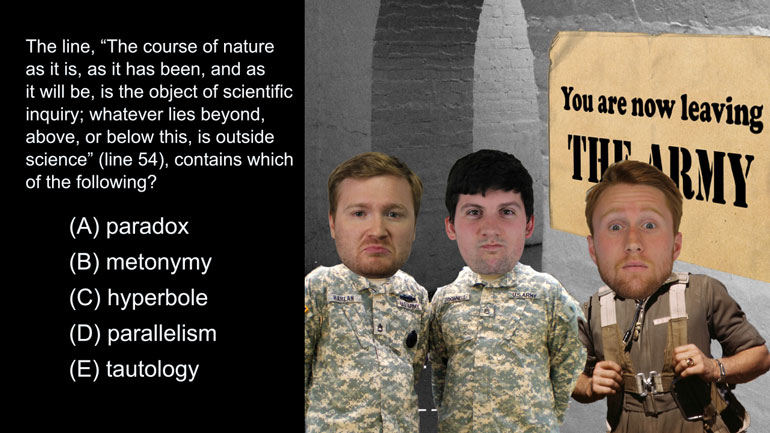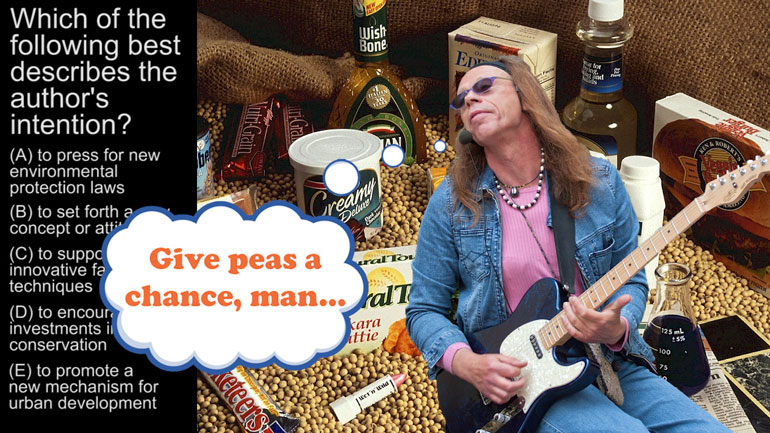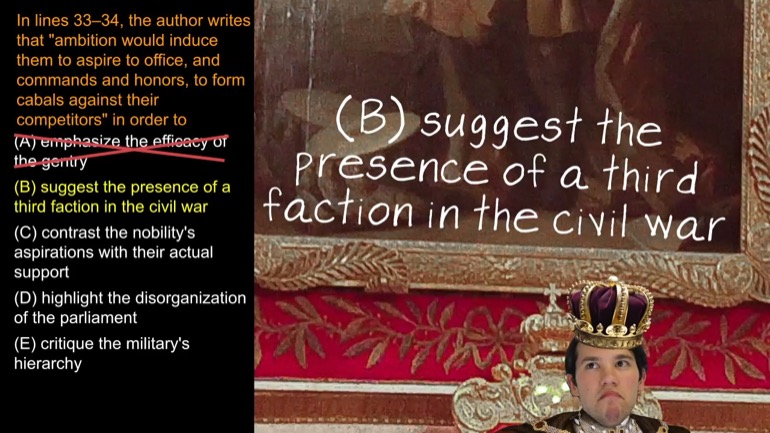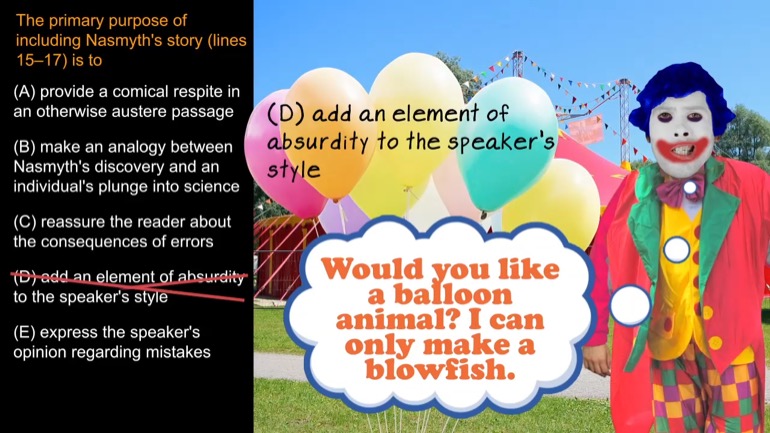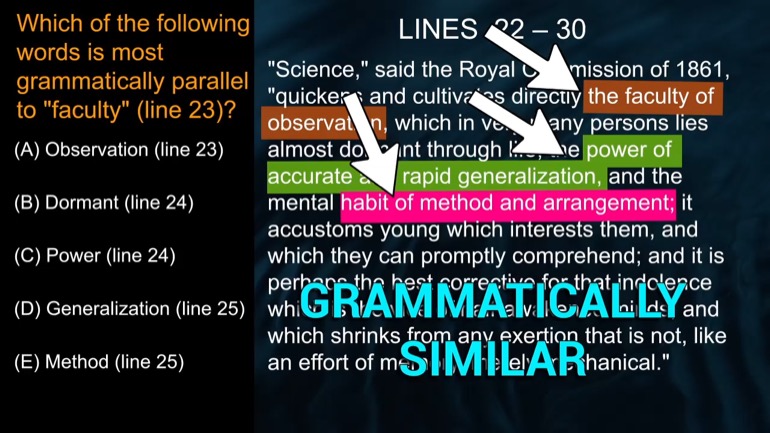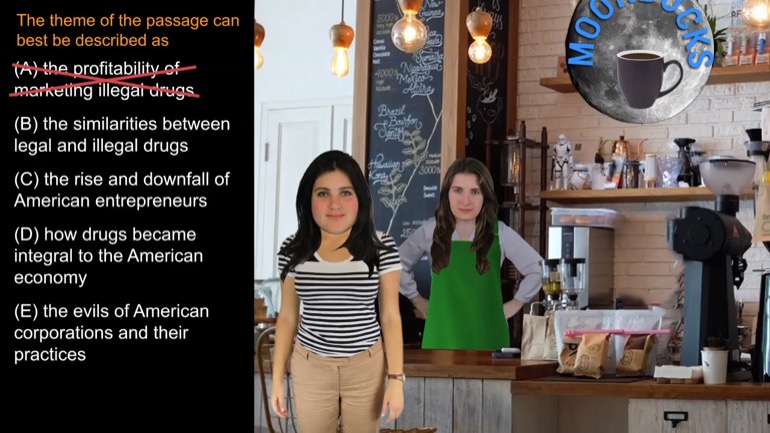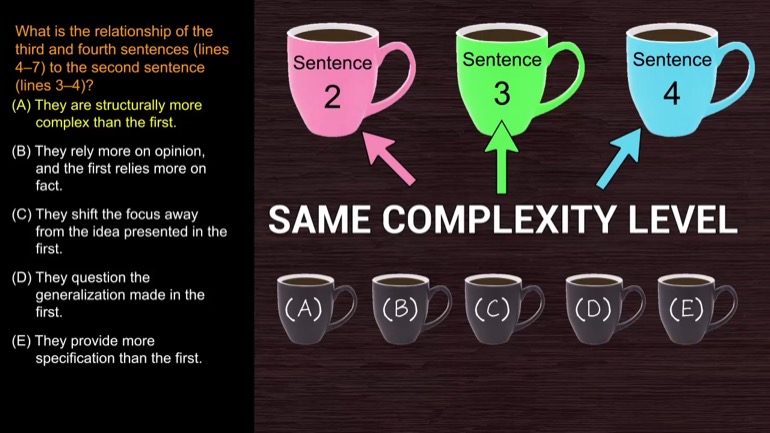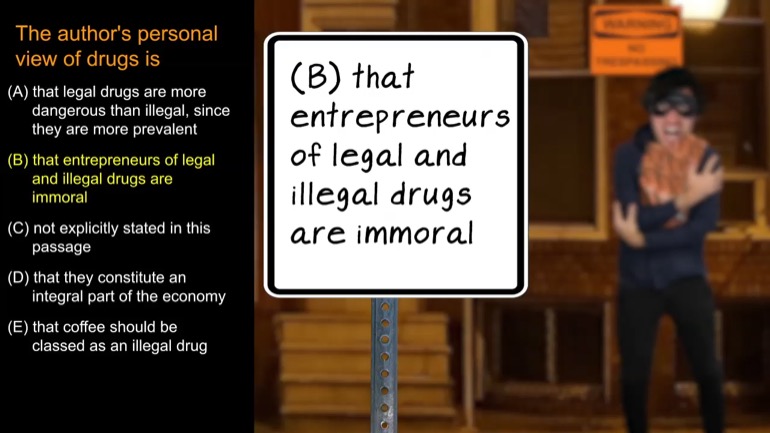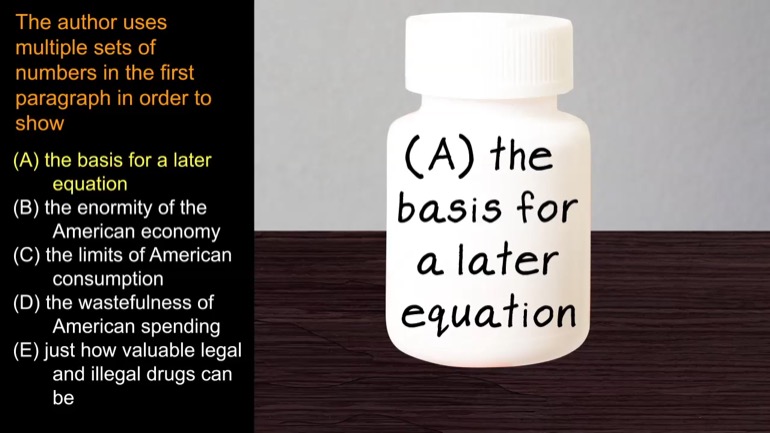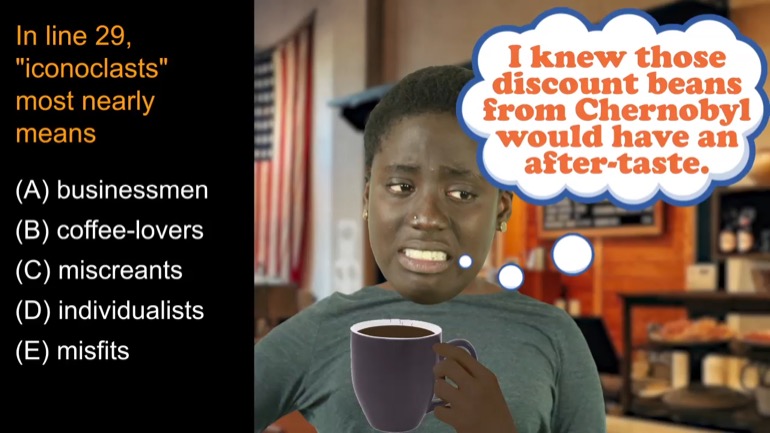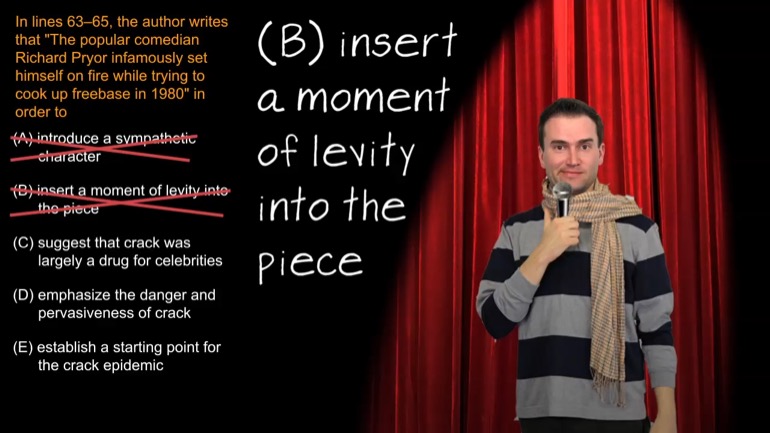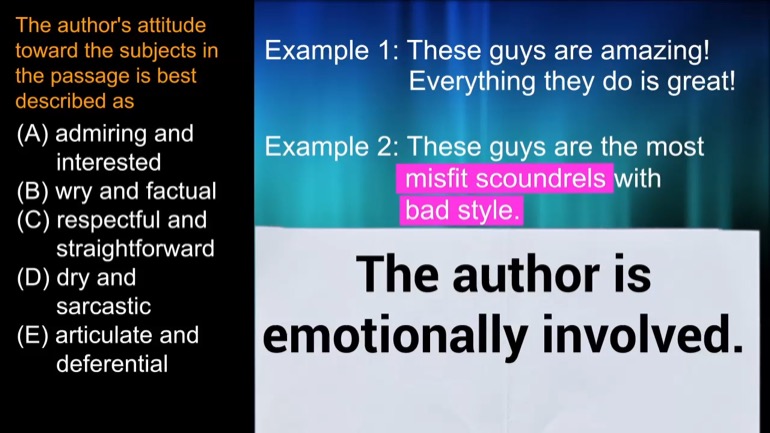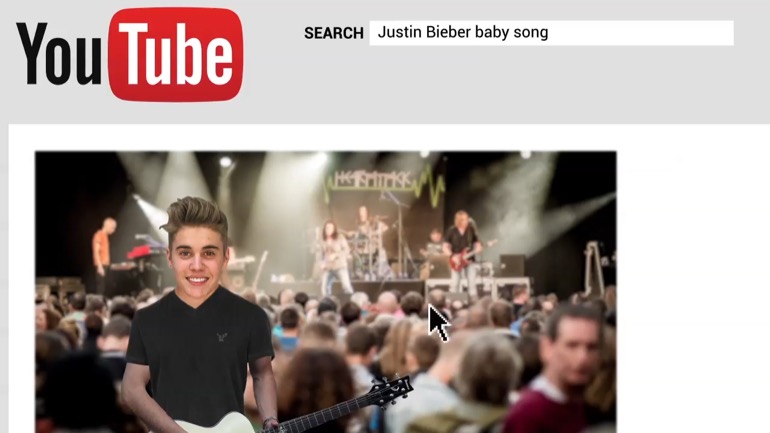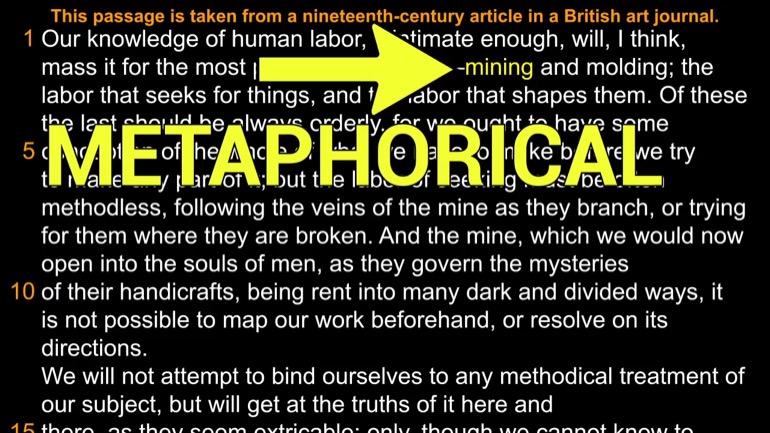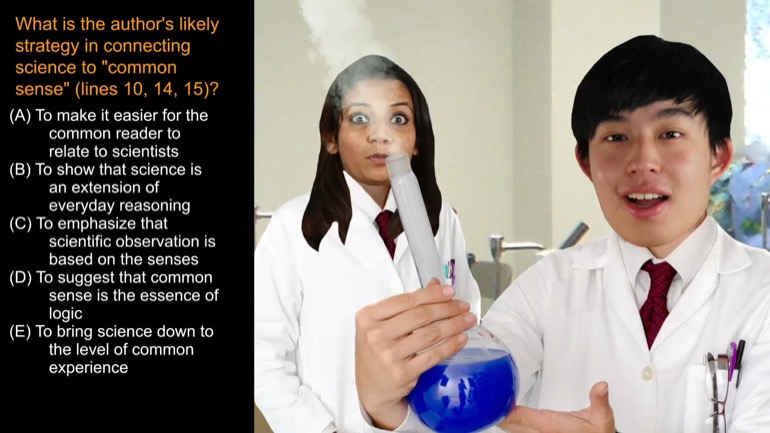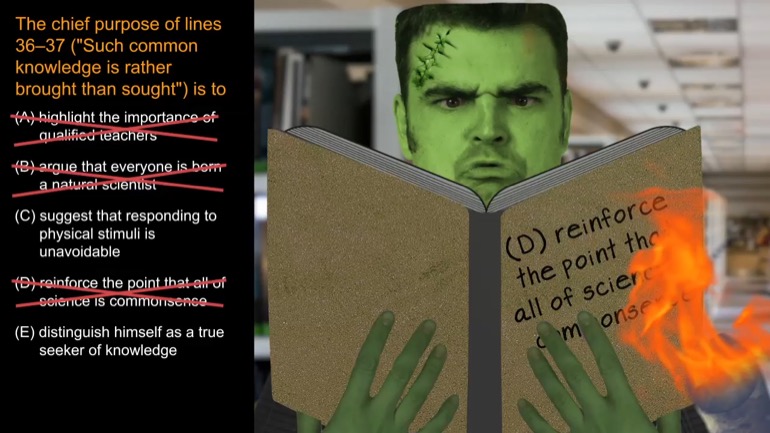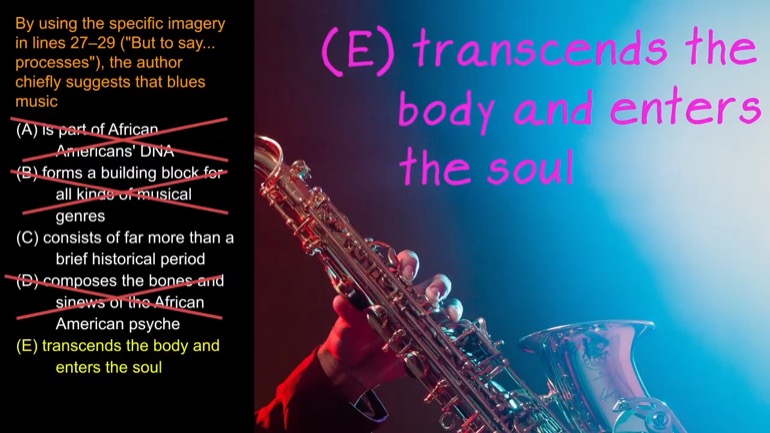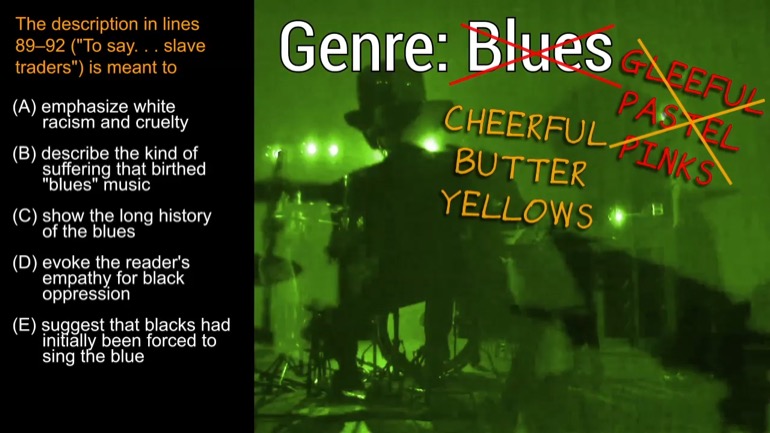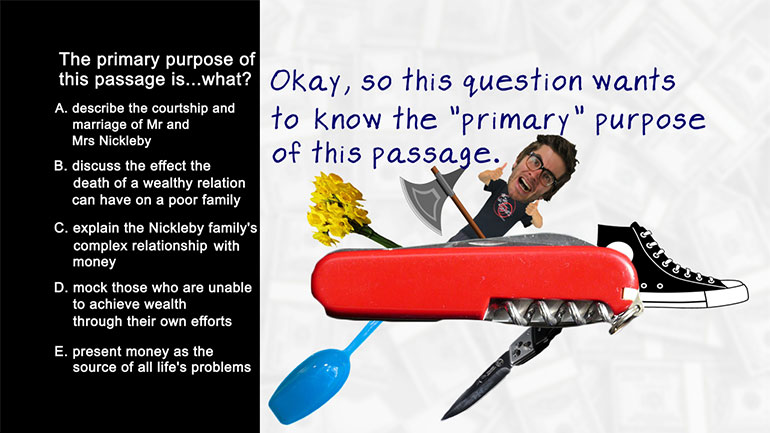ShmoopTube
Where Monty Python meets your 10th grade teacher.
Search Thousands of Shmoop Videos
Passage Drill Videos 153 videos
AP English Language and Composition: Passage Drill Drill 1, Problem 7. What is the principal rhetorical function of paragraphs one to three?
AP English Language and Composition: Passage Drill 1, Problem 8. The quotation marks in the third paragraph chiefly serve to what?
In this AP Language and Composition drill question, read the provided passage and infer information based upon footnote two. AP Language and Com...
AP English Language and Composition 3.2 Passage Drill 249 Views
Share It!
Description:
We don't know about you, but every time we've landed in a shallow pool of mud, we've been very much aware of the mud....not so much the stars. But hey, to each their own. Take a look at this AP English Language and Composition question and see if you can get the right answer.
Transcript
- 00:00
[ musical flourish ]
- 00:02
And here's your Shmoop du jour, brought to you by a grimy mixture of clay and sand.
- 00:07
They say it's exfoliating, but we think it amuses them
- 00:11
to watch us rub dirt on our faces and then pay them for the privilege.
- 00:16
[ mumbles ]
Full Transcript
- 00:24
All right, well, we're skimming, we're skimming. And we're just gonna jump in.
- 00:28
All right, the last line of the first paragraph - right here -
- 00:31
can best be described as... what?
- 00:33
And here are the potential answers.
- 00:35
[ mumbles ]
- 00:39
All right, well, this text might sound highfalutin,
- 00:41
but it's not so hard to understand when we break it down.
- 00:45
Throughout the first paragraph, the author talks about how dirt
- 00:48
can be turned into precious things, like
- 00:50
porcelain, opals, and diamonds.
- 00:52
Wish we could figure out how to do that with the dirt in our backyard.
- 00:56
The author ends the paragraph by pointing out
- 00:58
that when we look at a mud puddle,
- 01:00
we can either focus on the mud at the bottom of the puddle,
- 01:02
or the stars reflected in the water.
- 01:05
If you ask us, this idea is
- 01:07
pretty similar to what the passage has been talking about the whole time.
- 01:11
Commonplace, earthy things can lead to
- 01:13
fabulous, beautiful things.
- 01:15
Since we know the author isn't taking any major detours on the final sentence,
- 01:19
we can eliminate choices B and D.
- 01:22
B says that a shift in point-of-view is happening,
- 01:24
and D claims that some new theme is rearing its head.
- 01:28
But, as we just said, neither of these things are true.
- 01:30
The author is just finding creative ways to repeat himself.
- 01:33
Choice E doesn't come close to being right.
- 01:36
The paragraph doesn't mention any historical events
- 01:39
and the last sentence doesn't mention anything all that modern.
- 01:42
Let's face it, mud puddles are about as old school as it gets.
- 01:45
Option C tries to impress us with the fancy word "microcosm." Ooh.
- 01:50
Basically, a microcosm is a small thing that
- 01:52
can represent a bigger thing.
- 01:54
If a sports commentator were criticizing a bad
- 01:57
game, he might say,
- 01:58
"That game was bad. It was a microcosm for what's
- 02:01
been happenin' with this team all season."
- 02:04
That is, if sportscasters used words like "microcosm."
- 02:08
And they tried that with Dennis Miller on Monday night football,
- 02:10
and, uh, that didn't last.
- 02:11
Anyway, even though it's fun to use big words, we can't get along with choice C.
- 02:15
Noticing stars reflected in a puddle is a similar idea to
- 02:18
the others expressed in the paragraph.
- 02:19
It's not a mini-version that somehow represents a greater whole.
- 02:22
So this leaves us with choice A.
- 02:24
The last sentence is a parallel scenario which
- 02:27
just means the author is sticking to the same old, same old.
- 02:30
This guy should learn to live a little.
- 02:33
[ splash ]
Related Videos
AP English Language and Composition: Passage Drill Drill 1, Problem 2. What is the speaker's primary purpose in using onomatopoeia in line four?
AP English Literature and Composition 1.1 Passage Drill 7. The primary purpose of this passage is what?
Wishing upon a star may help you pass your AP English Language and Composition test, but answering this question would be a safer bet.
Take a look at this shmoopy question and see if you can figure out which device the speaker employs the most.
Feel like shifting gears and answering a question about shifting tones? We've got you covered. Take a look at this question and see if you can foll...
